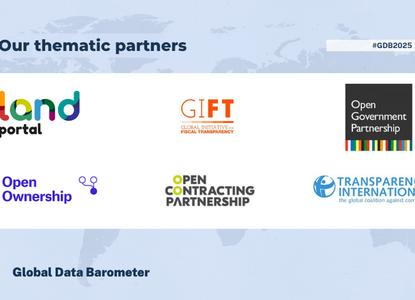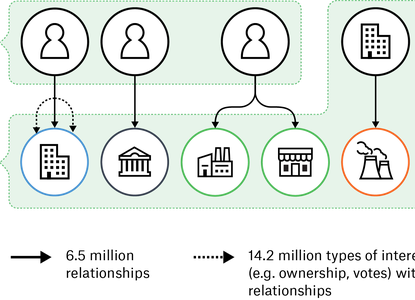Building on momentum: our direction of travel

I’ve been in post as Executive Director for eight weeks. Here’s what I’ve learned so far and an overview of where we’ll be going next.
First, I feel hugely privileged to have joined an organisation as strong, innovative and full of momentum as Open Ownership. The team have built the world’s first Beneficial Ownership Data Standard, Global Beneficial Ownership Register and have supported Ukraine, Kyrgyz Republic, Nigeria, Ghana as well as a number of other countries on their implementation of beneficial ownership transparency.
I also feel privileged to have joined an organisation as unique as Open Ownership. It’s unique because our work spans all stages of the beneficial ownership implementation cycle from doing the hard policy thinking on how to make good beneficial ownership data through to actually publishing it, working with users and, critically, using the data ourselves, at scale to understand how to improve our data standard. In short, if you’re doing data policy, it’s a good idea to base your decisions on real data. And we have that data to work with.
Where we’re at
The momentum towards transparent registers of beneficial ownership is huge. Eighteen countries have made beneficial ownership-related commitments in their OGP (Open Government Partnership) National Action Plans and the Extractive Industry Transparency Initiative (EITI) now requires companies to disclose the identity of beneficial owners by 2020.
The private sector voice for change is loud and growing and in day two of this job, I traveled to Paris for the EITI Summit and heard Simon Thompson, Chairman of RioTinto, a leading global mining group declaring that “knowing the beneficial owners of companies is absolutely central to what the EITI does.” Civil society, powerful industry voices and a growing number of governments from around the world are all getting on the same page about this issue.
Change is coming but it is not guaranteed. For example, in the European context, how the 5th Anti-Money Laundering Directive is implemented and just how open beneficial ownership data will actually end up being is a question that should concern us; Europe is a regulatory powerhouse and its actions will shape international norms.
Our direction of travel
Winning the argument
Political commitment and powerful voices for change are welcome but we cannot rest on our laurels because we haven’t yet convincingly, irrevocably won the argument that open registers are the best way to use this data to meet the challenges our societies face. No one disagrees that beneficial ownership data is valuable, but we are unequivocal about why open registers create more effective economies, reduce friction in trade and are the best way to use this beneficial ownership data to tackle corruption and deliver improved accountability. We will continue to demonstrate why this is the case by delivering high-quality data through our open register, showing how open delivers real benefits and supporting more countries to publish.
Creating more allies
Open Ownership was founded by an extraordinary community of organisations and people fighting for open beneficial ownership data. Our initial contention was, and remains, that open beneficial ownership registers serve as a necessary building block of what public accountability and anti-corruption efforts must look like in the 21st Century. But this argument alone won’t be enough - we must keep exploring the multitude of other ways in which this data can improve lives and society.
I believe that open data about who ultimately benefits from a company’s activities is going to play a vital role in helping us make sense of our increasingly confusing world, where complex layers of corporate entities obscure power and control. Chris Taggart, CEO of OpenCorporates has written compellingly about the sorts of challenges that may lie ahead with a “massive increase in the speed, number and complexity of companies, all powered by automation of company formation, and driven by demand from new technologies.”
Open Ownership will be exploring how data about who controls and benefits from companies can help citizens contextualise their world - who is really making money from online content, who are the real winners and losers in our economies and, where does true power lie in our societies? Alongside this we will continue to build the evidence base on the ways in which transparency about who owns our companies supports tax justice, builds trust between citizens, business and government and can level the playing field for businesses, big and small.
Deepening our expertise
As well as this, we’ll continue to do the hard policy thinking around issues that support our work including how we can best verify beneficial ownership data, improve data quality and respect privacy while delivering the clear public good that comes from open data publication.
Preparing to scale
Finally, in response to an ever-growing demand for our services, Open Ownership is set to grow. We’ll be advertising a number of roles across the organisation in the next couple of weeks. Please watch this space and help us spread the word.
Related articles and publications
Publication type
Blog post


